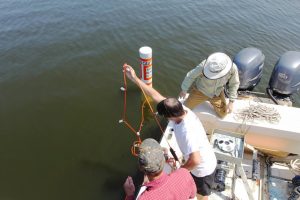About
During the 2016 legislative short session the North Carolina General Assembly approved a special provision in the annual budget bill, House bill 1030, Section 14.13(a) “Development of New Comprehensive Nutrient Management Regulatory Framework.” This section directs UNC-Chapel Hill to
“oversee a continuing study and analysis of nutrient management strategies and compilation of existing water quality data specifically in the context of Jordan Lake and Falls Lake.”
The legislation provides $500,000 annually over six years beginning in FY 2016 – 2017 and ending in FY 2021 – 2022 with progress reports on the study required every year. During 2019 researchers from UNC-Chapel Hill and NC State conducted a number of research projects as part of the study, including:
- Cataloguing and reviewing water quality data sets collected throughout the Jordan Lake watershed to identify discernible trends and also conducting additional water quality sampling to address data gaps.
- Evaluating reservoir vulnerability to eutrophication, including harmful algal blooms, relative to nutrient and sediment loads, streamflow patterns, and climate, for both current conditions and future scenarios.
- Identifying major sources of nutrients and sediments to Jordan Lake and the timing of loading.
- Evaluating likelihood of nutrient mitigation through the implementation of best management practices, regulatory measures and restoration efforts.
- Evaluating innovative financing mechanisms for stormwater controls and analysis of costs and benefits of water quality improvement.
- Reviewing nutrient strategies from other states, including the Chesapeake Bay Program, and analyzing the impact those strategies have had on water quality.
- Engaging with communities and stakeholders throughout the watershed through listening sessions, focus groups, etc.

